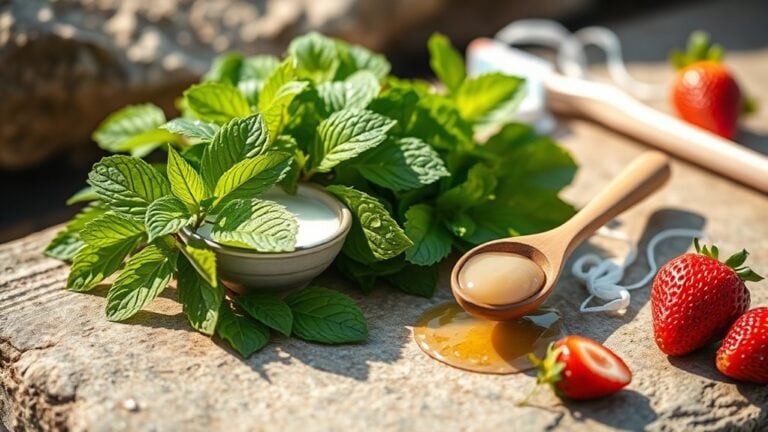Whenever urine carries a coffee-like aroma, many people ponder whether it’s a harmless quirk or something more serious. Normally, this happens because compounds from coffee, like caffeine or quinic acid, get filtered through the kidneys and into urine, giving it that familiar scent. But sometimes, other factors—like dehydration or certain medications—can amplify the odor, making it stronger than expected. While it’s usually nothing to worry about, paying attention to other symptoms can help spot whenever something’s off. Grasping why this happens can ease concerns and guide the next steps.
Common Causes of Coffee-Scented Urine
Though it might seem odd, urine that smells like coffee can happen for a few different reasons.
While usually harmless, persistent strong odors or other symptoms should prompt a doctor’s visit. Drinking more water often helps dilute the scent. Keeping track of diet and hydration can clarify what’s causing the change.
How Coffee Consumption Affects Urine Odor
Coffee contains compounds that the body processes and excretes through urine, often altering its smell.
Dehydration can make these coffee-related odors more noticeable, as concentrated urine holds stronger scents.
The more frequently someone drinks coffee, the more likely their urine might carry its distinct aroma.
Coffee Compounds and Urine
Because coffee contains a mix of naturally occurring chemicals, it can leave a distinct scent in urine after digestion. As coffee is metabolized, certain coffee metabolites—like caffeine and antioxidants—are broken down and excreted through urinary excretion.
These compounds, such as quinic acid and trigonelline, contribute to the noticeable aroma. The kidneys filter these substances, and their presence in urine can differ based on individual metabolism.
Some people process coffee faster, leading to a stronger scent, while others might not notice it at all. Hydration levels also play a role, as diluted urine could mask the odor.
The smell is usually harmless but can be more pronounced with high coffee intake. Drinking water helps flush out these compounds, reducing the intensity of the odor.
Dehydration and Urine Smell
As the body lacks enough fluids, urine becomes more concentrated, trapping strong-smelling compounds—including those from coffee—and amplifying their odor. Hydration levels impact how noticeable these odors are, with lower water intake leading to darker, more pungent urine.
Coffee’s natural compounds, like caffeine and acids, decompose into metabolites that exit through urine. While dehydrated, these metabolites aren’t diluted, making the coffee-like scent stronger.
Drinking enough water helps flush out these compounds, reducing the intensity of the smell. The importance of water intake can’t be overstated—it keeps urine lighter and less odorous.
For those who drink coffee regularly, balancing it with extra water prevents dehydration and minimizes strong-smelling urine. Staying hydrated is a simple fix for keeping urine odor mild, even after enjoying a cup of coffee.
Frequency of Coffee Intake
As people drink coffee often, the compounds that give it its rich flavor—like caffeine and acids—decompose in the body and eventually pass into urine. The more coffee someone drinks, the stronger the odor can become. Coffee consumption patterns play a big role—daily intake amounts determine how much of these compounds end up in urine. For example, someone drinking one cup could barely notice a change, while heavy drinkers could find their urine smells strongly of coffee.
| Daily Intake | Likely Urine Smell | Notes |
|---|---|---|
| 1 cup | Mild or none | Minimal impact on odor |
| 2-3 cups | Noticeable | Slight coffee scent possible |
| 4+ cups | Strong | Odor could linger longer |
| Decaf | Faint | Fewer compounds to decompose |
| Occasional | Rare | Only noticeable after drinking |
Moderation helps balance enjoyment and milder urine smells.
The Role of Dehydration in Urine Smell
As the body doesn’t get enough water, urine becomes more concentrated, which could make it smell stronger—sometimes like coffee.
Low water intake effects are noticeable as hydration levels drop, causing waste products to build up and intensify urine odor.
The hydration level impact is significant because less water dilutes the compounds in urine, making scents like coffee more pronounced.
Dark yellow or amber-colored urine often signals dehydration, along with a stronger smell.
Drinking more water usually helps, but should the odor persists, other factors might be at play.
Staying hydrated flushes out excess substances, reducing unusual smells.
Simple fixes like sipping water throughout the day or eating water-rich foods could balance hydration and minimize strong odors.
Medications That Can Alter Urine Odor
Certain medications can alter the way urine smells, which could come as a surprise in case you’ve ruled out dehydration or diet as causes. Antibiotic effects, for example, can change urine odor due to how they metabolize in the body. Similarly, supplement impacts—like B vitamins or certain herbal extracts—may leave a strong, coffee-like scent. It’s not always a cause for alarm, but understanding which medications do this helps ease worries.
| Medication Type | Common Examples | Potential Urine Odor Change |
|---|---|---|
| Antibiotics | Penicillin, Cipro | Metallic or bitter |
| B Vitamins | B6, B12 | Strong, almost coffee-like |
| Diuretics | Furosemide | Ammonia-like |
| Herbal Supplements | Fenugreek, Ginseng | Sweet or nutty |
Always check with a doctor should the smell persists or feels unusual.
Metabolic Conditions Linked to Coffee-Smelling Urine
Liver disease can sometimes cause urine to take on a coffee-like odor due to changes in waste filtration.
Diabetes or ketosis might also lead to a similar smell as the body breaks down fat for energy.
Additionally, certain rare genetic metabolic disorders can alter urine scent, making it resemble coffee.
Liver Disease Implications
As urine develops a coffee-like smell, it could indicate fundamental liver problems that impact how the body handles caffeine or other substances. The liver function impact might slow the breakdown of compounds, altering urine odor.
Hepatic enzyme activity, essential for metabolizing caffeine, can decrease with liver disease, leading to unusual scents. Conditions like cirrhosis or hepatitis might cause this change, as the liver struggles to filter toxins efficiently.
Other signs include fatigue, jaundice, or dark urine. Staying hydrated helps, but persistent symptoms warrant medical attention.
Limiting alcohol and caffeine reduces liver strain. A balanced diet supports liver health.
Regular check-ups catch issues early. Monitoring urine changes provides clues about liver function, making it vital to pay attention.
Diabetes and Ketosis Effects
As urine carries a coffee-like scent, it could signal metabolic shifts like diabetes or ketosis, where the body struggles to process glucose efficiently. Insulin resistance impact disrupts sugar breakdown, forcing the body to burn fat for energy, increasing ketone production influence. High ketone levels often produce a distinct odor, sometimes resembling coffee.
| Condition | Key Effect on Urine Odor |
|---|---|
| Diabetes | Elevated ketones from poor glucose use |
| Ketosis | Excess ketones from fat metabolism |
| Dehydration | Concentrated urine intensifying smell |
| High caffeine | Direct excretion of coffee compounds |
Those noticing persistent changes should monitor for other symptoms like frequent thirst or fatigue, as early detection aids management. Staying hydrated and moderating caffeine might help, but medical advice is vital for fundamental conditions.
Genetic Metabolic Disorders
While diabetes and ketosis can make urine smell like coffee, certain genetic metabolic disorders could also cause this unusual scent. These conditions stem from genetic enzyme deficiencies or inherited metabolic anomalies, where the body struggles to metabolize specific compounds.
One example is maple syrup urine disease, where poorly processed amino acids create a sweet, coffee-like odor in urine. Another condition, phenylketonuria (PKU), leads to a musty or chemical scent due to lack of enzyme function.
Symptoms often appear early in life and could include developmental delays or feeding difficulties. Diagnosing these disorders typically involves blood or urine tests.
Treatment focuses on dietary changes, supplements, or enzyme replacements. While rare, these conditions require medical attention to prevent complications.
Should coffee-smelling urine persist or occur with other symptoms, consulting a doctor is essential.
When to See a Doctor About Urine Odor Changes
Whenever urine starts smelling like coffee and the odor persists for more than a day or two, it’s worth paying attention to—especially whenever other unusual symptoms show up.
Urine odor persistence beyond 48 hours, especially with sudden odor changes, could signal dehydration, dietary habits, or hidden health issues.
A doctor should be consulted should the smell accompany dark urine, pain, fever, or frequent urination.
Conditions like UTIs, liver problems, or metabolic disorders might need medical evaluation.
People with diabetes or kidney disease should seek help immediately should urine smell unusual.
Even should no other symptoms appear, recurring coffee-like urine odor deserves a checkup to rule out serious causes.
Early detection often leads to simpler treatments and improved results.
Home Remedies and Lifestyle Changes
Whenever urine starts smelling like coffee, simple adjustments in daily habits can often help. Drinking more water dilutes urine, reducing strong odors. Swapping coffee for herbal tea benefits hydration while providing antioxidants. Stress reduction techniques like deep breathing or yoga can balance metabolism, possibly affecting urine scent. Avoiding excessive caffeine and spicy foods might also help.
| Remedy | How It Helps | Frequency |
|---|---|---|
| Water intake | Dilutes urine, reduces odor | 8-10 glasses daily |
| Herbal tea | Lowers caffeine, adds hydration | 1-2 cups daily |
| Stress management | Balances body chemistry | Daily practice |
| Limit caffeine | Reduces strong urine scent | Gradually decrease |
Small changes can make a big difference without drastic measures.
How Diet Influences Urine Scent
Because what you eat and drink passes through your body, it’s no surprise that diet plays a big role in how urine smells. Certain foods, like coffee, asparagus, or garlic, contain strong compounds that alter urine odor.
Food pairing effects can intensify these scents—for example, combining coffee with dairy could make the smell more noticeable. Nutritional impact analysis shows that high-protein diets or dehydration concentrate waste products, amplifying odors.
Spices like curry or fenugreek also leave traces in urine. Even artificial sweeteners or vitamin B supplements can contribute.
While these changes are usually harmless, a persistent or unusual smell could signal a health issue. Staying mindful of food choices and hydration helps manage urine scent naturally.
Shifts between digestive processing and excretion mean smells vary day-to-day.
Preventative Measures to Avoid Coffee-Smelling Urine
Whenever coffee-scented urine has become a frequent issue, adjusting daily habits can help manage or even eliminate the smell. Hydration strategies, such as drinking more water throughout the day, dilute coffee compounds in urine, reducing their odor. Dietary adjustments, like limiting coffee intake or balancing it with other beverages, also play a key role. Adding non-caffeinated fluids, such as herbal teas or infused water, can further help.
| Preventive Step | How It Helps |
|---|---|
| Increase water intake | Dilutes coffee byproducts in urine |
| Reduce coffee consumption | Lowers the amount of odor-causing compounds |
| Eat hydrating foods | Supports overall fluid balance |
| Alternate with decaf | Lessens caffeine’s impact on urine scent |
Balancing these steps can make a noticeable difference without drastic lifestyle changes.
Conclusion
Like a forgotten coffee cup left too long, urine that carries that familiar java scent often points to simple causes—your morning brew or needing more water. Yet when the aroma lingers like an uninvited guest, it might whisper of deeper issues. Staying hydrated, adjusting habits, and listening to your body can often clear the air, but don’t hesitate to seek answers when the smell overstays its welcome.





